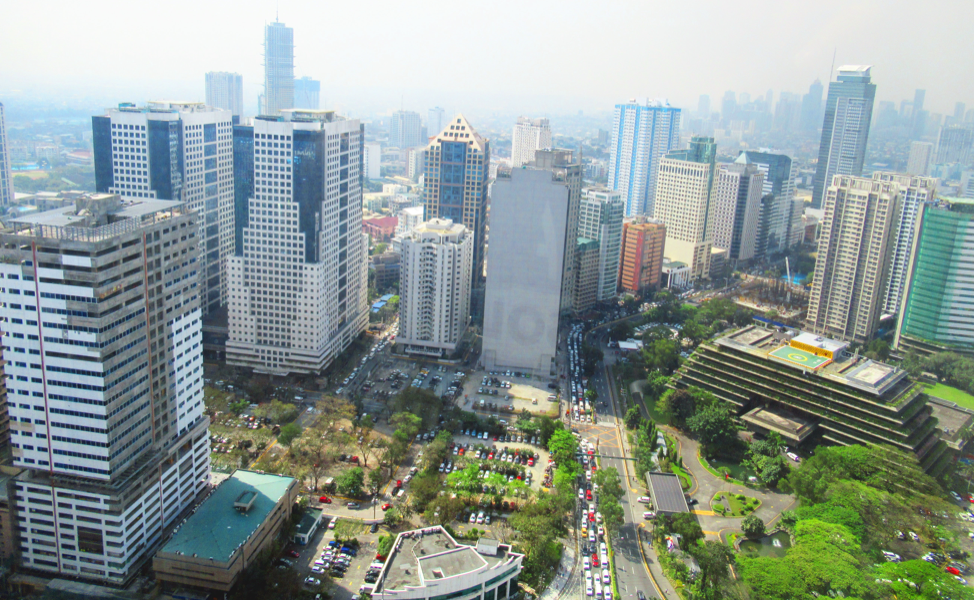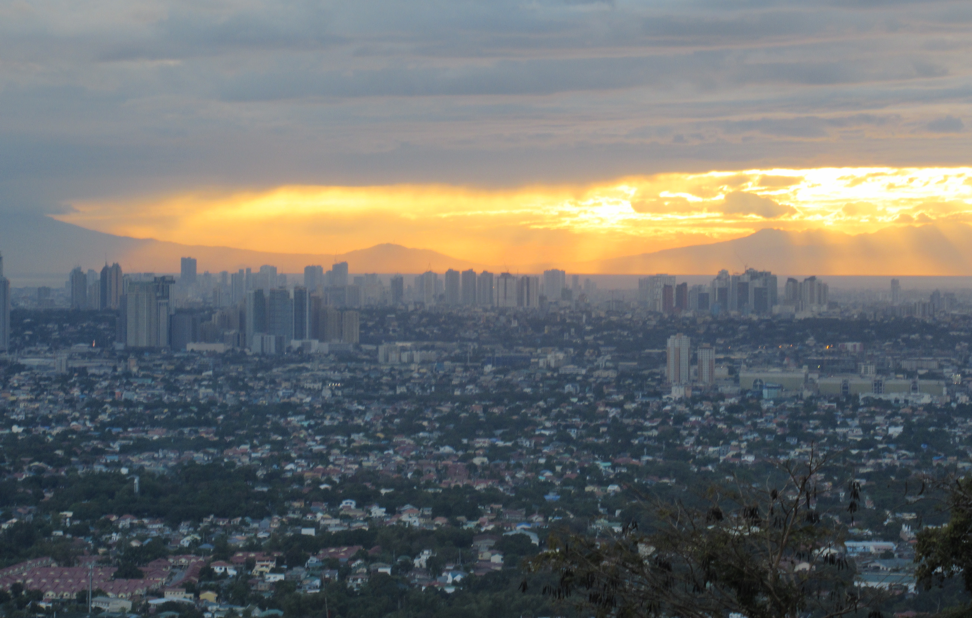13 Philippine Cities Qualify for One Planet City Challenge 2019 – 2020
May 2019

An aerial view of the bustling Pasig City. Pasig is one of the cities to return to OPCC 2019 - 2022 after having participated in the previous rounds of the challenge in the country. © WWF-Philippines
Thirteen cities from Metro Manila, Luzon, Visayas, and Mindanao have successfully met the qualifications to participate in the 2019-2020 edition of World Wide Fund for Nature’s (WWF) One Planet City Challenge (OPCC), following guidelines that were posted earlier this year by the international organization.
The OPCC, once known as the Earth Hour City Challenge (EHCC) when it was first launched in 2011, is a biennial global challenge that recognizes feats of infrastructure, housing, transportation, and mobility enacted by cities in commitment to a low-carbon, climate-resilient future. WWF recognizes the importance and highlights the roles of cities in combatting climate change, with 55% of the human population residing in urban centers and with 70% of global emissions emanating from them.
The call for applicants was given out in February this year inviting cities from around the globe to show tangible commitments in line with the Paris Agreement and the 1.5C global warming goal and to report ambitious, cross-cutting, inclusive big-win climate action plans that deliver on those commitments.
Now on its sixth run, the OPCC has grown to become the largest and longest-running challenge of its kind, with 411 cities having accepted the challenge and recorded a total of 5,732 recorded actions. With these positive impacts, WWF projects that 3,856 metric tons of greenhouse gases could potentially be saved by the year 2050.
Previous OPCC global winners include Vancouver, Canada in 2013; Cape Town, South Africa in 2014; Seoul, South Korea in 2015; Paris, France in 2016; and Uppsala, Sweden in 2018. Meanwhile, Pasig City was named as Philippine winner during the 2017-2018 iteration of OPCC, while Santa Rosa City took the award during 2015-2016 edition, the country’s first time participating in the challenge.
Returning to OPCC 2019 – 2020 after having participated in the previous rounds of the challenge in the country are Batangas City, Cagayan de Oro City, Parañaque City, Pasig City, Quezon City, Santa Rosa City, San Carlos City, and Tagum City. Joining them are first-time qualifiers Davao City, Dipolog City, La Carlota City, Malolos City, and Muntinlupa City. To guide these cities, WWF Philippines has partnered with ICLEI Southeast Asia to provide technical assistance.
WWF-Philippines President and CEO Joel Palma was pleased with the addition of five new Philippine cities to the roster of OPCC participants, and encouraged other cities to make similar commitments to the environment. “With these new cities joining this iteration of the OPCC, it shows that, year by year, we as a country are becoming increasingly concerned with our impact on the environment. I hope in the future runs of OPCC, we will see even more Philippine cities joining, and that as a nation we begin taking our commitments to the climate more seriously,” said Palma.

Light shines down on the mountaintops peeking out from behind Pasig City. © WWF-Philippines
Qualifiers from the Philippines will now join contending cities from across the globe which will be required to report the following most important components of the OPCC assessment:
- Existing targets and commitments of applying cities;
- Action plans;
- Greenhouse gas inventories; and
- Renewable energy and/or energy efficiency solutions.
These cities will then be put before an international jury of experts, who will assess each cities’ performance in working towards a global warming cap of 1.5 degrees Celsius.
After the announcement during the second quarter of 2019, finalists will be invited to join the We Love Cities campaign, a social media contest that aims to inspire and engage respective citizens of the finalists for support, votes, and ideas for improvement. Said campaign has reached 100 million individuals across 50 cities during the last edition. The most ambitious cities with credible, strategic, holistic and innovative approaches will be recognized as national winners, and, from among these, one city will be crowned the global winner of the One Planet City Challenge.
Additional information can be found at www.panda.org/opcc and http://www.welovecities.org/.
For more information, please contact:
Atty. Angela Consuelo Ibay
Head, Climate and Energy Programme
-
Ms. Imee Bellen
One Planet City Challenge Project Manager
ibellen@wwf.org.ph
-
Mr. Dan Ramirez
Communications and Media Manager
dramirez@wwf.org.ph
About WWF
WWF is one of the world’s largest and most respected independent conservation organizations, with over 5 million supporters and a global network active in over 100 countries. WWF's mission is to stop the degradation of the Earth's natural environment and to build a future in which humans live in harmony with nature, by conserving the world's biological diversity, ensuring that the use of renewable natural resources is sustainable, and promoting the reduction of pollution and wasteful consumption.
WWF-Philippines has been working as a national organization of the WWF network since 1997. As the 26th national organization in the WWF network, WWF-Philippines is successfully implementing various conservation projects to help protect some of the most biologically-significant ecosystems in Asia.
